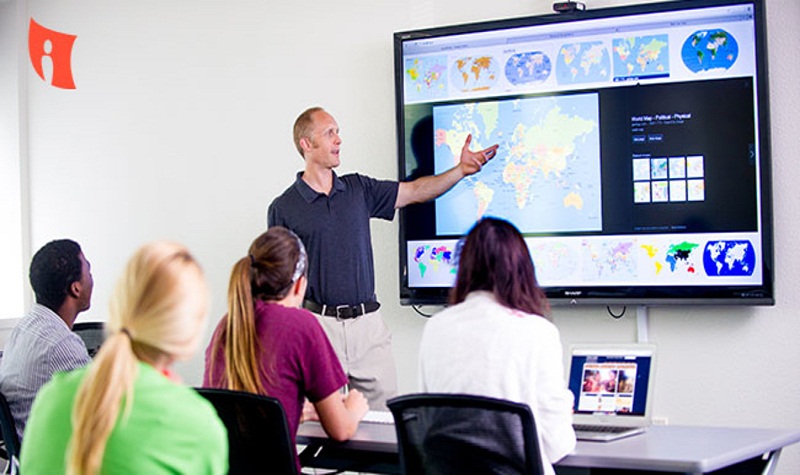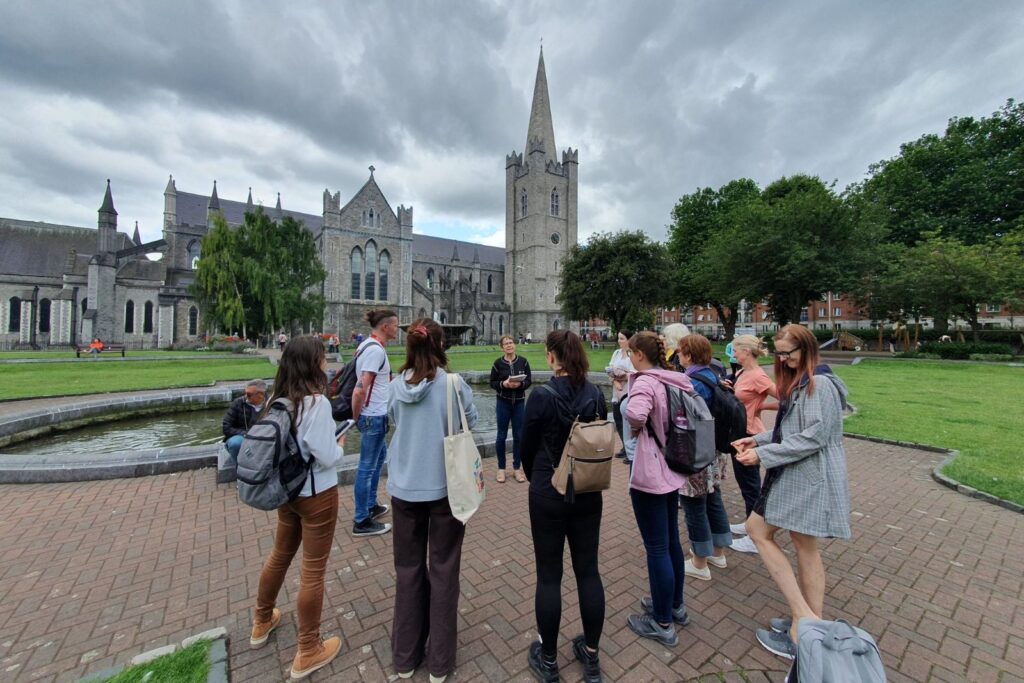Maximizing Opportunities: A Comprehensive Guide to Erasmus+ Funding for English Language Education in Ireland
- Understanding Erasmus Funding: A Pillar of Educational Excellence
- Eligibility Criteria for Erasmus Funding: A Roadmap to Success
- Accreditation and Recognition
- Quality Assurance and Improvement
- European Dimension and Cross-Cultural Collaboration
- Alignment with Priorities and Objectives
- Key Priority Areas of Erasmus+ Funding: Guiding Principles for Educational Excellence
- Inclusion and Diversity
- Digitalization and Innovation
- Environmental Sustainability
- Civic Engagement and Active Citizenship
- Vocational Education and Training (VET)
- Examples of Eligible Activities: Unleashing Innovation and Creativity
- Staff Mobility and Professional Development
- Learner Mobility and Internationalization
- Strategic Partnerships and Collaborative Projects
- Capacity Building and Innovation
- Benefits of Erasmus Funding: Unlocking Potential and Driving Change
- Enhanced Educational Quality and Relevance
- Promoting Intercultural Understanding and Global Citizenship
- Empowering Teachers and Staff
- Strengthening Institutional Capacity and Resilience
- Conclusion: Embracing the Journey Towards Educational Excellence
Navigating the Landscape of Erasmus+ Funding

Erasmus+ serves as a beacon of educational empowerment, transcending geographical boundaries to foster collaboration, innovation, and cultural exchange. In this comprehensive guide, we will delve deeper into the eligibility criteria, explore a myriad of eligible activities, and highlight the transformative benefits of accessing Erasmus+ funding in Ireland.
Understanding Erasmus Funding: A Pillar of Educational Excellence
Erasmus+ stands as a cornerstone EU programme, embodying the principles of mobility, cooperation, and lifelong learning. By encompassing education, training, youth, and sport, Erasmus+ aims to nurture skills development, enhance employability, and promote European values and identity. Let us embark on a journey to unravel the intricacies of Erasmus+ funding and its profound impact on English language education in Ireland.
Eligibility Criteria for Erasmus Funding: A Roadmap to Success
To qualify for Erasmus+ funding, EFL programmes in Ireland must satisfy rigorous eligibility criteria, ensuring the efficacy and sustainability of funded projects. These criteria encompass various facets, including:
Accreditation and Recognition
The programme must be offered by an accredited educational institution or organization recognized by national and international authorities, ensuring adherence to quality standards and best practices.
Quality Assurance and Improvement
Demonstrating a commitment to continuous quality assurance and improvement is essential, fostering excellence in teaching methodologies, curriculum design, and student support services.
European Dimension and Cross-Cultural Collaboration
Projects funded by Erasmus+ should embody a clear European dimension, promoting cross-cultural understanding, linguistic diversity, and cooperation among participants from diverse backgrounds.
Alignment with Priorities and Objectives
Proposals should align closely with the priorities and objectives outlined in the Erasmus+ programme guide, addressing pressing needs and challenges in the field of language education, such as digitalization, inclusivity, and sustainability.
Key Priority Areas of Erasmus+ Funding: Guiding Principles for Educational Excellence
Erasmus+ funding is underpinned by five key priority areas that serve as guiding principles for promoting educational excellence, fostering innovation, and addressing pressing societal challenges. Understanding these priority areas is essential for stakeholders seeking to leverage Erasmus+ opportunities effectively. Let’s delve into each of these priority areas:

Inclusion and Diversity
Erasmus+ prioritizes initiatives that promote inclusion, diversity, and equal opportunities in education and training. This includes projects aimed at reducing disparities in access to education, addressing the needs of marginalized groups, including individuals with disabilities, refugees, and migrants, and fostering inclusive learning environments that celebrate diversity and promote social cohesion.
Digitalization and Innovation
In the digital age, harnessing the power of technology and innovation is crucial for enhancing teaching and learning outcomes. Erasmus+ supports projects that leverage digital tools, platforms, and methodologies to enhance educational quality, accessibility, and relevance. This includes initiatives focused on digital skills development, e-learning, virtual mobility, and the integration of emerging technologies such as artificial intelligence, virtual reality, and gamification into educational practices.
Environmental Sustainability
As the world grapples with pressing environmental challenges, Erasmus+ emphasizes the importance of sustainability in education and training. Projects that promote environmental awareness, sustainability literacy, and green practices are prioritized, aiming to equip learners with the knowledge, skills, and attitudes needed to address environmental issues and contribute to a more sustainable future. This includes initiatives focused on climate change education, renewable energy, eco-friendly practices, and sustainable development goals.
Civic Engagement and Active Citizenship
Erasmus+ encourages active citizenship, democratic participation, and social engagement among learners and educators. Projects that promote civic education, democracy, human rights, and intercultural dialogue are prioritized, aiming to empower individuals to become informed, responsible, and active members of society. This includes initiatives focused on community engagement, volunteerism, social entrepreneurship, and youth empowerment, fostering a sense of belonging, solidarity, and social responsibility.
Vocational Education and Training (VET)
Erasmus+ places a special emphasis on vocational education and training (VET) as a key driver of employability, skills development, and economic growth. Projects that enhance the quality, relevance, and accessibility of VET are prioritized, aiming to equip learners with the skills, competencies, and certifications needed to succeed in the labour market. This includes initiatives focused on work-based learning, apprenticeships, entrepreneurship education, and collaboration between VET providers and employers.
Examples of Eligible Activities: Unleashing Innovation and Creativity
Within the dynamic landscape of the EFL industry, myriad opportunities abound for leveraging Erasmus+ funding to support innovative teaching and learning initiatives. Let us explore a diverse array of eligible activities that promise to enrich the educational experience and empower stakeholders.
Staff Mobility and Professional Development
Erasmus+ funding facilitates the mobility of EFL teachers and staff for professional development purposes, enabling them to participate in training courses, conferences, seminars, job shadowing placements, and teaching assignments abroad. These immersive experiences not only enhance pedagogical skills but also foster intercultural competence and lifelong learning.
Learner Mobility and Internationalization
Erasmus+ enables language learners to embark on transformative mobility experiences, such as study periods, internships, or volunteering opportunities in other European countries. By immersing themselves in diverse linguistic and cultural contexts, learners gain invaluable insights, broaden their horizons, and develop intercultural communication skills essential for success in today’s interconnected world.
Strategic Partnerships and Collaborative Projects
Institutions can forge strategic partnerships with other EFL providers, educational institutions, NGOs, and stakeholders across Europe to collaborate on innovative projects, curriculum development initiatives, research endeavours, and exchange programmes. By pooling resources, expertise, and best practices, partners can create synergies, promote excellence, and address common challenges facing the EFL community.
Capacity Building and Innovation
Erasmus+ funding can be judiciously utilized to strengthen the capacity of EFL organizations through training activities, staff exchanges, networking events, and the development of innovative teaching materials, digital tools, and educational resources. By investing in professional development and innovation, institutions can enhance the quality, relevance, and impact of their educational programmes, thus empowering learners and fostering societal change.
Benefits of Erasmus Funding: Unlocking Potential and Driving Change
The benefits of accessing Erasmus+ funding in Ireland are plenty; extending beyond financial support to encompass transformative educational experiences, personal growth, and societal impact. Let us explore some of the key benefits.
Enhanced Educational Quality and Relevance
Erasmus+ funding enables institutions to enhance the quality, relevance, and accessibility of their educational programmes, thereby enriching the learning experience for students and promoting academic excellence.
Promoting Intercultural Understanding and Global Citizenship
By facilitating mobility and cross-cultural collaboration, Erasmus+ fosters intercultural understanding, empathy, and solidarity among participants from diverse linguistic, cultural, and socio-economic backgrounds, thereby promoting global citizenship and social cohesion.
Empowering Teachers and Staff
Erasmus+ provides teachers and staff with valuable opportunities for professional development, networking, and sharing best practices, thus empowering them to innovate, grow, and thrive in their careers.
Strengthening Institutional Capacity and Resilience
Through strategic partnerships, capacity-building activities, and knowledge exchange initiatives, Erasmus+ strengthens the capacity and resilience of educational institutions, enabling them to adapt to changing societal needs, technological advancements, and global challenges.
Conclusion: Embracing the Journey Towards Educational Excellence
In conclusion, Erasmus+ funding represents a gateway to educational excellence, innovation, and internationalization in the field of English language education in Ireland. By leveraging Erasmus+ opportunities, stakeholders can unlock the full potential of mobility, cooperation, and lifelong learning, thus shaping a brighter, more inclusive, and interconnected future for all. Let us embark on this transformative journey together, as we strive to empower learners, enrich communities, and build a more sustainable and equitable world through the power of education!
Author: Rachel Ball, OST Co-ordinator, Centre of English Studies (Dublin)
